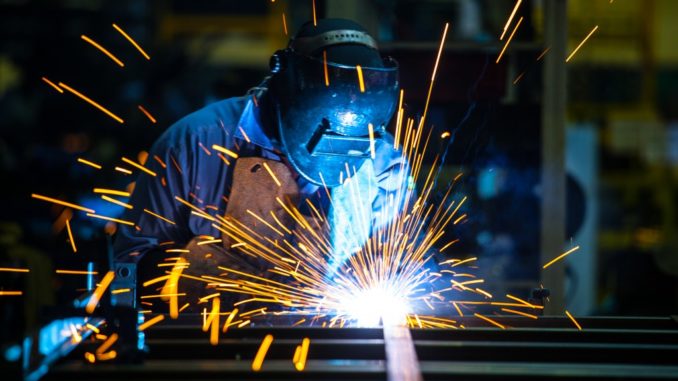
 Welding is one of the core fabrication options for metal in the construction and manufacturing industries. Welders can transform all kinds of metal into unique products and shapes. Non-professional welders assume that all it takes is the pulling of a trigger on a welding gun to get a weld. There are however different techniques used for welding and various aspects which determine the best technique to use. These include the type and thickness of your metal, your overall budget, and the shape of your welds. It is a good idea to let experts from welding shops in Edmonton handle your welds to guarantee an optimal outcome.
Welding is one of the core fabrication options for metal in the construction and manufacturing industries. Welders can transform all kinds of metal into unique products and shapes. Non-professional welders assume that all it takes is the pulling of a trigger on a welding gun to get a weld. There are however different techniques used for welding and various aspects which determine the best technique to use. These include the type and thickness of your metal, your overall budget, and the shape of your welds. It is a good idea to let experts from welding shops in Edmonton handle your welds to guarantee an optimal outcome.
Arc welding is the most common technique for steel and iron measuring at least 4mm. The method involves the use of an electrical power source for the creation of an arc between the electrode welding stick and base metal. The arc will melt the metal at its point of joining which allows its crafting into a weld. Here are the types of arc welding techniques.
FCAW {Flux-Cores Arc Welding}
This uses tubular flux-filled electrodes. The flux coating is less brittle compared to the coatings used on shielded metal arc welding electrodes and retains most of its alloying benefits. The emitted flux will shield your welding arc from air contaminants. Shielding gases will be used if a non-emissive flux is required. FCAW is popular for the welding of heavy metal sections measuring more than an inch because of its high weld-metal deposition rate.
GMAW {Gas Metal Arc Welding}
This is also called MIG welding and involves the creation of an arc using a shielding gas like helium or argon or a mixture of both. GMAW also features deoxidizers in its electrodes for the prevention of oxidation making welding in multiple layers possible. The temperatures used for this arc welding technique are however low making the process suitable only for thin metal sheets.
GTAW {Gas Tungsten Arc Welding}

This is also called TIG welding. Tungsten electrodes are used as one of the arc poles for the generation of the required heat. The welding process involves the use of argon or helium or a combination of these gases and filler wires made of a similar material to the metal being welded for the provision of molten metal if necessary. GTAW is ideally used for thin metals.
SMAW {Shielded Metal Arc Welding}
This is one of the most versatile, oldest and simplest methods of arc welding. The arc used for the process comes from the coated tip of an electrode which is touched to a work piece then withdrawn for the arc’s maintenance. The generated heat will melt the tip, base metal, and coating, and form a weld out of the alloy on its solidification. The slag formed for the protection of the weld from oxidation is removed after every weld. SMAW is typically used in the construction, shipbuilding and pipeline sectors.
The above types of arc welding are fast, can be used on dirty metals and might not necessarily need post welding cleaning. These properties make them cheaper compared to most welding techniques. The machines used for arc welding are also portable, meaning most jobs can be done onsite.
